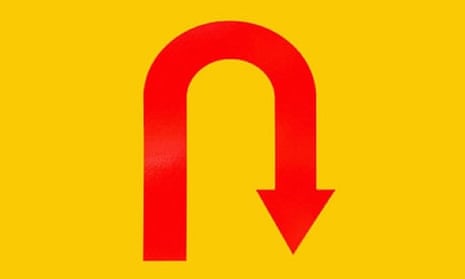In January 2014, I found myself sitting in a secure waiting room in London’s Springfield psychiatric hospital. The events leading up to my being there began as far back as I can remember. That’s the very nature of what the consultant referred to as dysthymia or chronic depression, and I was in the midst of a severe depressive episode.
My condition had been with me for so long that I believed it was just who I was. I accepted the lows as normal – as an advantage, even. I felt I had something that allowed me to see the world differently, and while it made me cynical, that was my punishment for the privilege to see what others couldn’t. Living with depression had hindered my life in ways that I had completely forgotten.
After leaving home to study film at university, I spent the next eight and a half years in a stable, happy relationship. But approaching 30, and unsure where my life was going, I felt an overwhelming sense of guilt that I was holding my girlfriend back. I wasn’t ready for marriage or children, and she was. I made the decision to end things.
I tried to suppress my heartache through a combination of alcohol – drinking every night and most days – working around the world on jobs I’d dreamed of doing, and starting a new relationship, which on the surface seemed exciting but deep down was toxic. I was aware of my low mood and my GP agreed to prescribe me a course of cognitive behavioural therapy (CBT) followed by interpersonal therapy.
In hindsight, the 12-appointment programmes only served to expose painful issues before leaving me to deal with them on my own. My new relationship came to an abrupt end. For a brief few months, for the first time in my adult life, I was alone. The latest break-up triggered a darker mood and though I maintained a presentable existence superficially, I couldn’t motivate myself to live meaningfully. A second visit to my GP ended with a prescription for antidepressants. But I felt I knew best, and chose not to pick them up.
The following days turned bleak. I wrote a suicide note. I planned how I would kill myself. Events at that time remain a blur, but I had an incredible GP, who called me daily, and the support of four close friends, who congregated at my flat. I was very lucky. The on-call psychiatrist visited me at home. I was told to take medication, but no direction was given. That evening, my friends escorted me to the A&E where I was assessed. Four hours later, I was transferred to the local psychiatric hospital.
My brief time at Springfield was full of cliches. I listened to a patient banging on the door, before they broke into a rendition of the Beatles’ Help. I watched hospital staff chase a patient across the garden from my window. The next morning, I assured the attending doctor that I wasn’t “like those people”, while recognising how desperate that must have sounded. Lack of beds and the fact I was admitted voluntarily rather than sectioned, meant that I was released the next afternoon.
I returned to the hospital as an outpatient in the following days and began a course of the anti-depressant Sertraline for the next 11 months. I could not be seen by the community mental health team while on the waiting list for the NHS’s Improving Access to Psychological Therapies (IAPT) programme, but I was fortunate to find a practice with sliding scale fees in my local area and began 18 months of talking therapy.
My hospital stay was rock bottom, but having a diagnosis let me focus on recovery. The unending support I had from my GP, friends and family meant I was never left alone afterwards. Though the medication made it hard to sleep, a backlog of old episodes of The Ricky Gervais Show had me laughing myself to sleep instead of crying.
At the risk of sounding cliched, I feel as though I’ve found something greater in life since my breakdown and diagnosis. I’ve learned that, for me, being happy is a choice. For too long I’d ceded control to cynicism and negativity. It’s certainly the most difficult realisation I’ve made, and it has taken a long time to feel OK. But I’m reassured by others recognising a change in me, too.
I weather the ups and downs where I couldn’t before because I have worked hard to shift my mindset. I developed and adjusted my sleeping patterns, explored new parts of London, volunteered at my local boxing club, continued to work as a visiting lecturer, and enjoyed lots of reading. Having a focus outside my own career was incredibly important.
I’ll soon be selling the flat I’ve lived in for eight years – and although I’m not sure what comes next, I’m embracing the uncertainty. There are still days when I feel down, but I remind myself that, like anything worth having in life, being happy takes work. And so, I’ll keep working.
